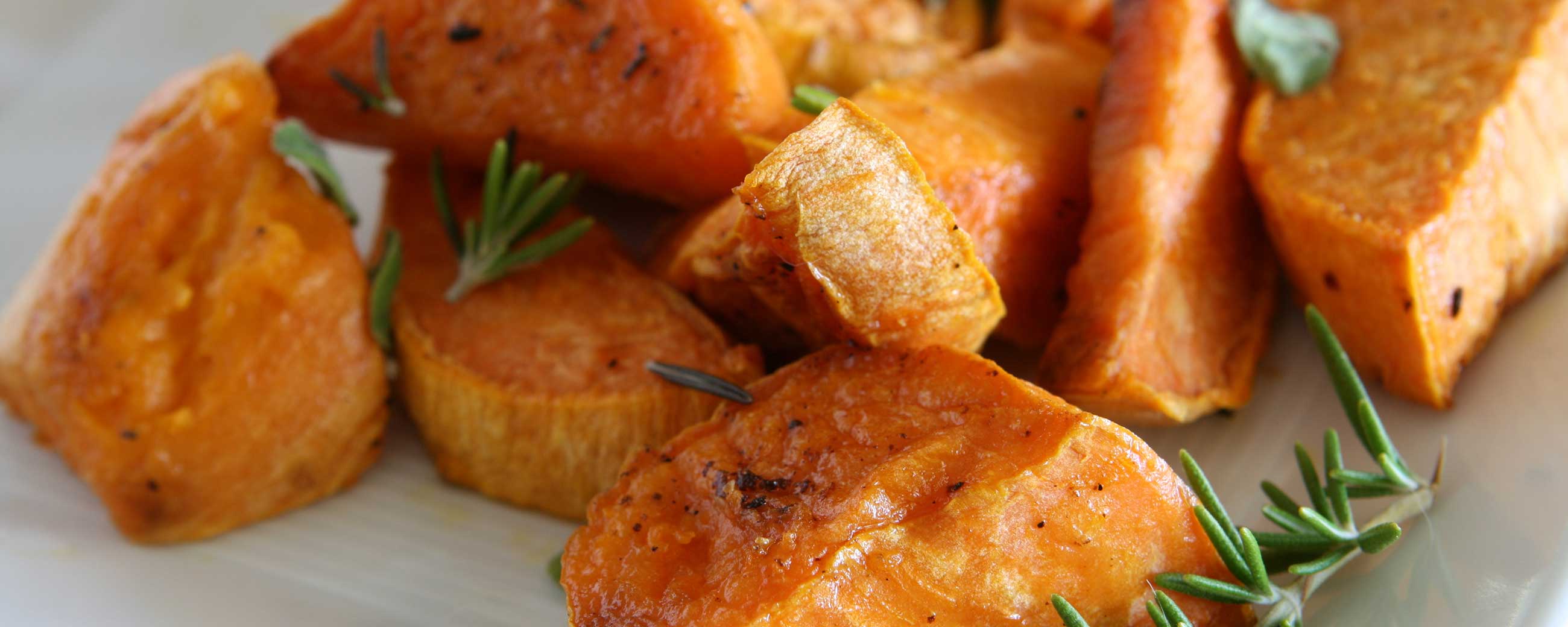
Navigating Social Situations on Low Carb: Holiday Survival Guide

If you’ve ever struggled with sticking to healthy lifestyle choices in social situations, you’re not alone. Stressors like travel, pressure from friends, and family dynamics can all make staying true to your goals more difficult.We asked the Virta community for their insight into what situations they find most challenging for sticking to their health goals and how they overcome those challenges.
#1. Know Your Triggers
Knowing yourself and the situations you find most difficult to manage will help you better plan ahead and stay the course when they arise. The following are some common challenges you could run into:AlcoholDrinking can make sticking to healthy habits more difficult in many ways. For one, the extra carbohydrates and calories in alcohol add up over time. Further, drinking lowers inhibitions - which may make you more likely to eat off plan.Constant grazingHolidays and celebrations lend themselves to having lots of food available all day, which can easily turn into eating all day.Family and friend dynamicsThe holidays bring up a lot of memories and can also be strongly associated with certain foods. For those of us with a habit of turning to food in times of stress, the holidays present a unique challenge of added stress and readily available foods that we may have strong feelings towards. Plus, family members and friends can sometimes add pressure to eat a certain way.Virta patients shared the situations they personally find challenging:
Anything that takes me away from my regular schedule and the regular food I eat is very much a challenge. I do very well when I have control at a restaurant, but when I have to deal with family celebrations or parties where I can’t control what is there that I have the most problem.
Dinner party invitations from friends or acquaintances. I tend to politely decline or fabricate an excuse. If that doesn’t work, I attempt to switch the venue to my house where I can be in control of the menu. That way I can introduce the fact I only eat low carb and it won’t be a surprise if I turn down carb laden foods at their house on a later date.
#2. Communicate Your Needs
It can be intimidating to share your way of eating with others, especially if it’s still new. If you bring it up ahead of time though, most hosts will appreciate your honesty. If you’re nervous, you could try employing a friend or family member to speak to the host on your behalf (especially if they’re the one that knows them better) or offer to contribute a dish.Despite best efforts, it’s likely that not everyone will be accepting or know how to accommodate your new lifestyle. You can’t control others reactions, but you can control your own. If you’re worried about how you’ll communicate, you could write out a script and practice with a loved one or by recording yourself.Here’s an example of how you could write your own script for someone pressuring you to eat food you don’t want to eat:
- Start Simple
First attempt a polite but simple, “no thank you.” Many people will accept this and move on. You can also add in a short reason why, such as “I’m stuffed,” or “maybe later.”
- Rehearse your Reason
For those closest to you, being honest about why you are turning down the food may be all they need to back down and offer support. Use the sandwich technique:
- Start with a positive: “I know it’s a bummer, I remember how good your pumpkin pie is!”
- Insert your (honest) reason: “Unfortunately, my body really can’t handle carbohydrates very well”
- Close the sandwich with another positive statement: “But I can eat your delicious bacon-wrapped asparagus!”
- Communicate with Confidence
The way we communicate sends signals to the other person on how they should respond. If you are able to assert yourself with confidence, many people will realize “convincing” is not worth it. Some simple but confident phrases you can try are:
- “You know the saying: ‘Once You Pop You Can’t Stop!’ I am sure it’s so good I won’t be able to stop myself”
- “I will be able to continue to enjoy many more holidays if I stick with this - it’s keeping me healthy!”
- “Thank you so much for checking in on me. I’m not going to have any now, but if I need anything I’ll let you know.”
- Add Assurance
At the root of why some people feel the need to push food, is from their fear that they also may be forced to change, or that things will be different now.Assure your friends and family that this is a personal decision (you add your reasons why if you feel comfortable) and that you will not try to impose it onto them.Remind them that all this means is you may start to add more variety to your meals or gatherings and bring some of the new recipes you enjoy. Allow them to eat what they choose, without judgement or commentary from you.Virta patients shared their experiences communicating their needs:
I have tried to do this most of the time. My coach is always willing to help me form a plan of action. There are times that I don’t know exactly what will be there and that makes it more difficult.
Yes, it worked out but it was a little awkward. I don’t care for a lot of attention. I usually let my wife bring my dietary restrictions up to the host, we make a good team in that regard.
I’ve had a (cardiac nurse) friend sincerely tell me she was worried about my health. I’ve had numerous people (including doctors) tell me I’m killing myself. I tend to stress the fact that Virta is a medically supervised program and don’t be concerned. I find most people are curious about the weight loss and diabetes reversal. Almost everyone knows someone with diabetes. Plus I am a pretty good evangelist for the health benefits of the low carb lifestyle.
In the beginning it was always positive. Now, I don’t get that many questions. I think people are tired of hearing me talk about it OR they feel guilty that they aren’t eating healthy themselves!
#3. Plan Ahead
Planning ahead is a common tip for staying on track and it’s for a good reason - it really does help to have a strategy for the different challenges that may arise. Part of being prepared is having a set of go-to tools to stay and get back on track. Here are some of our favorites:
- Mindfulness exercises- If you feel a craving coming on, using exercises like mantras or body scan techniques can be helpful to bring yourself back to the present. For more information and a mindful eating exercise, check out our blog post on mindful eating.
- Go for a walk- Even a quick 5 minute walk can help you clear your head and put things back in perspective.
- Recipes to share- If you have the opportunity to bring food to a celebration it’s a great chance to show off how delicious low carb foods can be. Have a list of your favorites ready so you know what to make.
- Healthy snacks- If you can’t bring a dish with you and you know there won’t be many foods you can eat, bring a snack like nuts or jerky to keep in your bag or coat pocket. Even if you don’t eat it, knowing it’s there will help if you start to worry about going hungry.
Having a plan for the challenges you know you frequently encounter is helpful as well. For example, if you know you are going to drink alcohol, stick to lower carbohydrate options and consider using seltzer to cut drinks.If you struggle with eating throughout the day when you’re not hungry, you could set a rule for yourself that you need to be seated before you eat. This can help you focus on eating the foods that make you feel good in amounts that make you feel good.Virta patients shared their strategies for planning ahead:
If I’m going to a restaurant and the restaurant has a website with nutritional information, I plan exactly what I’m going to order so I don’t keep people waiting and I can make sure there is something there I can have and what will be the best choice. If it’s a family or friend’s home I try to ask what is being served and I have been known to bring my own food if there isn’t anything I can eat. That doesn’t happen that often. Most of my family knows what I can have and they are usually very thoughtful.
Know what you are safe to eat/drink. Do your homework. I‘ve changed the way I eat out at a restaurant since most menus are available online I know what I can and cannot eat ahead of time. Be nice if social events were the same. For family events, we usually do a ‘potluck’ type meal, so I know i can eat what I bring.
Holidays are for enjoying time with friends, family, and loved ones. If you do eat off-plan, take it as a learning experience. Forgiving yourself and moving forward afterwards are what matter and are the best plan of action for reaching your goals.
A Virta friend told me this not too long ago when I was lamenting over what to do about Thanksgiving. She said I just need to keep in mind “It’s only one meal!” That is so true! She said concentrate on being with your family and enjoying that time together instead of what you’re eating or not eating. Which do I want more? To eat things that can throw me off track and cause me to take days to recover from it or do I want to stay the course and not have to suffer the repercussions of eating things I shouldn’t have? I hope to make the right choice!
This blog is intended for informational purposes only and is not meant to be a substitute for professional medical advice, diagnosis, or treatment. Always seek the advice of your physician or other qualified health provider with any questions you may have regarding a medical condition or any advice relating to your health. View full disclaimer
Are you living with type 2 diabetes, prediabetes, or unwanted weight?








